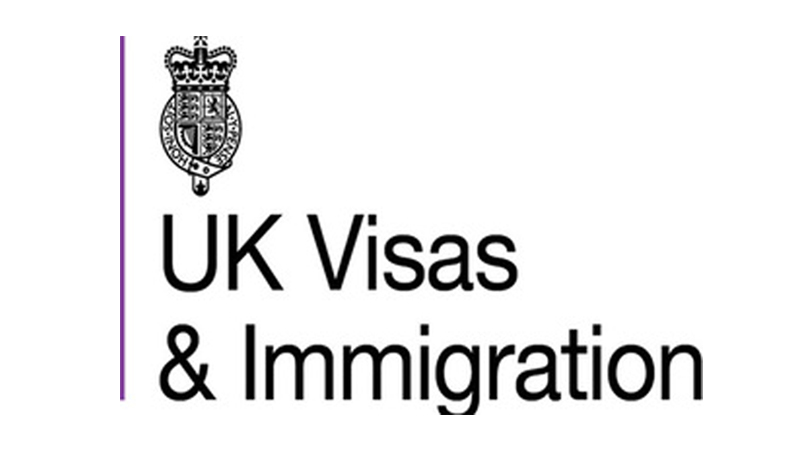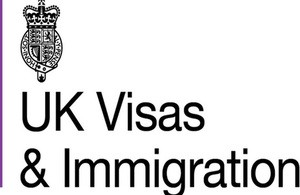
 06 April is a date that immigration lawyers look forward to with dread. It is the start of a new tax year, which is fine. Read More
06 April is a date that immigration lawyers look forward to with dread. It is the start of a new tax year, which is fine. Read More

 06 April is a date that immigration lawyers look forward to with dread. It is the start of a new tax year, which is fine. Read More
06 April is a date that immigration lawyers look forward to with dread. It is the start of a new tax year, which is fine. Read More

 It’s not often we say it, but we’ve just had a thoroughly good experience with the Home Office and are most impressed with their helpfulness and efficiency! So it’s only fair to give praise when it’s due.
It’s not often we say it, but we’ve just had a thoroughly good experience with the Home Office and are most impressed with their helpfulness and efficiency! So it’s only fair to give praise when it’s due.
Briefly, we were acting for a client who came to us after having her Tier 2 application refused for various fairly technical reasons. We lodged an appeal to keep her legal, and able to work, while things were sorted, and meanwhile we advised her potential employers on what they needed to do to get a new Certificate of Sponsorship (CoS) and, once they had done this, how to issue it correctly. Once they assigned the CoS to our client we lodged a new Tier 2 application for her.
Once the new CoS was issued and the application was ready to submit we had to withdraw the appeal, and she was no longer able to work, so it was vital that the application was dealt with as quickly as possible for the client and her employer. So, we made her application under the Tier 2 Priority Service, which costs an extra £300 but promises a decision within 10 working days.
And guess what – they delivered just what they promised!
We emailed the Priority Service people at 8:30AM on a Monday morning (they only have 60 places each day for the scheme and it’s first come first served), and got an email back in 2 hours confirming we could apply on the scheme. We received extremely prompt (and helpful) replies to a couple of emails with queries about submitting the application, and posted it the next day. And sure enough, exactly 10 working days later, we were notified that the application was successful. Result – one delighted client and employer, and all without the usual waiting, uncertainty and general stress that an immigration application typically involves.
So, well done to the Tier 2 Priority Service, and the rest of the Home Office please take note!

 An interesting ‘news’ story from the BBC earlier this week:
An interesting ‘news’ story from the BBC earlier this week:
When Keith Vaz, the chair of the Home Affairs Committee, pointed out that British citizens have to earn £18,600 per year before they can bring their spouses in, while EEA nationals have no such requirement to show minimum earnings, James Brokenshire, Minister of State for Immigration at the Home Office, acknowledged the unfairness of this, announcing it to be ‘unacceptable’ and needing ‘to be addressed’.
If you are one of the thousands of people who has been kept apart from their loved ones because of the new financial requirements, however, don’t get your hopes up that this signifies a softening in the government’s position – Mr. Brokenshire appears to regard this as a ‘loophole’ that European nationals are taking advantage of and which he means to close, presumably meaning that everyone, British or European, would have to meet the minimum earnings requirement.
He is quoted as saying that he ‘plans to raise it with Britain’s EU partners’, thereby giving the impression of talking tough while in reality he must surely know that there is no chance at all that any minimum earnings requirement would be accepted by the European Commission, as this would be a clear breach of the right of free movement.
The BBC story is here.

 From 2 March 2015, everyone getting married in England or Wales will have to give 28 days notice at the Registry Office or in an Anglican church. And the authorities will be obliged to refer all such notices to the Home Office in cases where one or both parties are not:
From 2 March 2015, everyone getting married in England or Wales will have to give 28 days notice at the Registry Office or in an Anglican church. And the authorities will be obliged to refer all such notices to the Home Office in cases where one or both parties are not:
The Home Office can extend this notice period up to 70 days to investigate whether they consider the marriage to be a ‘sham marriage’ just for immigration purposes. And if you don’t cooperate with the investigation, you won’t be allowed to marry.
We can’t see how this is different from the Certificate of Approval scheme that ran between 2004 and 2011, which required anyone getting married in the UK who was not a British or European citizen, or a person with Indefinite Leave, to get Home Office permission (at a fee) before marrying in a Registry Office. That scheme (ruled illegal by the House of Lords in 2008, not not abolished until 2011) and this one are the Home Office’s response to the problem of sham marriages – defined as being marriages entered into by a couple who are not in a genuine relationship in order to obtain an immigration advantage for one or both of them.
 The Home Office see this as a major problem, especially where an EEA national is involved, as once married the non-EEA national spouse has an automatic right to live and work in the UK, and many European nationals and their spouses have been invited for interview (usually in Liverpool and usually at 9:oo AM, regardless of where in the UK they live) where they are questioned separately (and rather aggressively according to many reports) on the minutiae of their daily lives, in the hope of identifying enough contradictions to justify a refusal of their Residence Card application.
The Home Office see this as a major problem, especially where an EEA national is involved, as once married the non-EEA national spouse has an automatic right to live and work in the UK, and many European nationals and their spouses have been invited for interview (usually in Liverpool and usually at 9:oo AM, regardless of where in the UK they live) where they are questioned separately (and rather aggressively according to many reports) on the minutiae of their daily lives, in the hope of identifying enough contradictions to justify a refusal of their Residence Card application.
So, how will the new regime work? According to Home Office estimates:
That is, between a quarter and a third of marriages where one or the other of the parties is not settled in the UK are, according to the Home Office, ‘sham marriages’. And their plan to combat this? The Home Office say that they have the capacity to investigate 6,000 cases per year, though we understand that there will be a staff of 20 doing this. That’s:
Did anyone say backlog?!
It’s not clear exactly how the new arrangements will operate in practice, so we will wait with interest to see exactly how many marriages are investigated and how long this takes. The Home Office envisage an increase in judicial reviews and appeals against enforcement action, which will also mean an increase in the fees payable, so it’s a win-win situation for them.
And, of course, their impact assessment includes one of the usual suspects, ‘increased employment opportunities for UK residents’, on the basis that the job occupied by an overseas national in a sham marriage who is removed from the UK will be available to a UK resident.